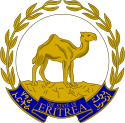The politics of Cambodia are defined within the framework of a constitutional monarchy, in which the king serves as the head of state, and the prime minister is the head of government. In practice, Cambodia is an authoritarian state, as power is centralized in the hands of the Cambodian People’s Party (CPP) under long-standing leader Hun Sen. Civil society groups, independent media and opposition parties are repressed, and elections are not free and fair.

The politics of Eritrea and the government of Eritrea take place in the framework of a single-party presidential republican totalitarian dictatorship. The President officially serves as both head of state and head of government. The People's Front for Democracy and Justice is the only political party legally permitted to exist in Eritrea. The popularly elected National Assembly of 150 seats, formed in 1993 shortly after independence from Ethiopia, elected the current president, Isaias Afwerki. There have been no general elections since its official independence in 1993. A new constitution was drafted in 1993 and ratified in 1997, but has not been implemented. Since the National Assembly last met in January 2002, president Afwerki has exercised the powers of both the executive and legislative branches of government.
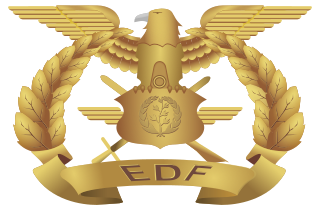
The Eritrean Defence Forces (EDF) are the combined military forces of Eritrea composed of three branches: Eritrean Army, Eritrean Air Force and Eritrean Navy. The Army is by far the largest, followed by the Air Force and Navy. The Commander-in-Chief of the EDF is the President of Eritrea. Their military role stems from Eritrea's strategic geographical location, located on the Red Sea with a foothold on the Bab-el-Mandeb strait.
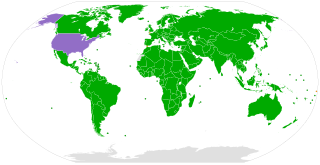
The United Nations Convention on the Rights of the Child is an international human rights treaty which sets out the civil, political, economic, social, health and cultural rights of children. The convention defines a child as any human being under the age of eighteen, unless the age of majority is attained earlier under national legislation.

The Constitution of the Republic of China is the fifth and current constitution of the Republic of China (ROC), ratified by the Kuomintang during the Constituent National Assembly session on 25 December 1946, in Nanking, and adopted on 25 December 1947. The constitution, along with its Additional Articles, remains effective in ROC-controlled territories.
A constitutional amendment is a modification of the constitution of a polity, organization or other type of entity. Amendments are often interwoven into the relevant sections of an existing constitution, directly altering the text. Conversely, they can be appended to the constitution as supplemental additions, thus changing the frame of government without altering the existing text of the document.

A constituent assembly is a body assembled for the purpose of drafting or revising a constitution. Members of a constituent assembly may be elected by popular vote, drawn by sortition, appointed, or some combination of these methods. Assemblies are typically considered distinct from a regular legislature, although members of the legislature may compose a significant number or all of its members. As the fundamental document constituting a state, a constitution cannot normally be modified or amended by the state's normal legislative procedures in some jurisdictions; instead a constitutional convention or a constituent assembly, the rules for which are normally laid down in the constitution, must be set up. A constituent assembly is usually set up for its specific purpose, which it carries out in a relatively short time, after which the assembly is dissolved. A constituent assembly is a form of representative democracy.
The Constitution Act, 1982 is a part of the Constitution of Canada. The Act was introduced as part of Canada's process of patriating the constitution, introducing several amendments to the British North America Act, 1867, including re-naming it the Constitution Act, 1867. In addition to patriating the Constitution, the Constitution Act, 1982 enacted the Canadian Charter of Rights and Freedoms; guaranteed rights of the Aboriginal peoples of Canada; entrenched provincial jurisdiction over natural resources; provided for future constitutional conferences; and set out the procedures for amending the Constitution in the future.
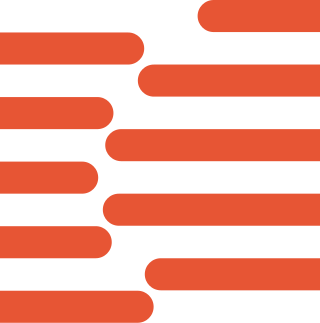
The Control Yuan is the supervisory and auditory branch of the government of the Republic of China, both during its time in mainland China and Taiwan.

Isaias Afwerki is an Eritrean politician and partisan who has been the first and only president of Eritrea since 1993. In addition to being president, Isaias has been the chairman of Eritrea's sole legal political party, the People's Front for Democracy and Justice (PFDJ).

The National Assembly of the State of Eritrea has 150 members, 75 members appointed and 75 members representing the members of the Central Committee of the People's Front for Democracy and Justice (PFDJ), the sole legal political party of Eritrea. According to the IPU, the National Assembly has 150 indirectly elected members. The National Assembly was composed in 1994, and its meeting place is located in Asmara.

The Ethiopian–Eritrean Federation was a coalition between the former Italian colony of Eritrea and the Ethiopian Empire. It was established as a result of the renunciation of Italy’s rights and titles to territorial possessions in Africa, inclusive of all its established territories or colonies made effective by the Treaty of Paris of 1947. The fate of Eritrea was contingent on numerous political, social, and economic ideals of Eritreans that ranged from leftists favoring independence, conservatives favoring Ethiopian crown rule, and Eritreans who favored a political union of the two sides of the spectrum. In an attempt to provide Eritrea with ultimate autonomy under an Eritrean curated constitution and governmental elections, UN Resolution 390 (A) was devised to implement such welfare to the individuals it was to be imposed upon.

The Constitution of Armenia was adopted by a nationwide Armenian referendum on July 5, 1995. This constitution established Armenia as a democratic, sovereign, social, and constitutional state. Yerevan is defined as the state's capital. Power is vested in its citizens, who exercise it directly through the election of government representatives. Decisions related to changes in constitutional status or to an alteration of borders are subject to a vote of the citizens of Armenia exercised in a referendum. There are 117 articles in the 1995 constitution. On November 27, 2005, a nationwide constitutional referendum was held and an amended constitution was adopted. The constitution was amended again in a national referendum on December 6, 2015 that changed the political structure from a semi-presidential system to a parliamentary republic.
The Constitution of the Philippines is the supreme law of the Philippines. Its final draft was completed by the Constitutional Commission on October 12, 1986, and ratified by a nationwide plebiscite on February 2, 1987. The Constitution remains unamended to this day.

The Constitution of Ivory Coast was approved by referendum on October 30, 2016, and officially adopted on November 8, 2016.

The Provisional Constitution of the Federal Republic of Somalia is the supreme law of Somalia. It provides the legal foundation for the existence of the Federal Republic and source of legal authority. It sets out the rights and duties of its citizens, and defines the structure of government. The Provisional Constitution was adopted on August 1, 2012 by a National Constitutional Assembly in Mogadishu, Banaadir.

Somali nationality law is regulated by the Constitution of Somalia, as amended; the Somali Citizenship Law, and its revisions; and various international agreements to which the country is a signatory. These laws determine who is, or is eligible to be, a national of Somalia. The legal means to acquire nationality, formal legal membership in a nation, differ from the domestic relationship of rights and obligations between a national and the nation, known as citizenship. Nationality describes the relationship of an individual to the nation under international law, whereas citizenship is the domestic relationship of an individual and the state. Somali nationality is typically obtained under the principle of jus soli, i.e. by birth in Somalia, or jus sanguinis, born to parents with Somali nationality. It can be granted to persons with an affiliation to the country, or to a permanent resident who has lived in the country for a given period of time through grant (naturalization).
The judiciary of Somaliland is the judicial branch of the Somaliland government.

The 1969 Somali coup d'état was a bloodless military takeover of the Somali Republic on 21 October 1969, led by Somali National Army officers of the Supreme Revolutionary Council under General Siad Barre. After the assassination of President Abdirashid Shermarke in Las Anod, the Somali National Army under Barre's command stormed Mogadishu, seized key government buildings, and demanded the resignation of the country's leaders. The coup deposed acting President Sheikh Mukhtar Hussein and Prime Minister Mohammad Egal, ushering in a 21-year military rule under Barre and the establishment of an authoritarian government that lasted until 1991.
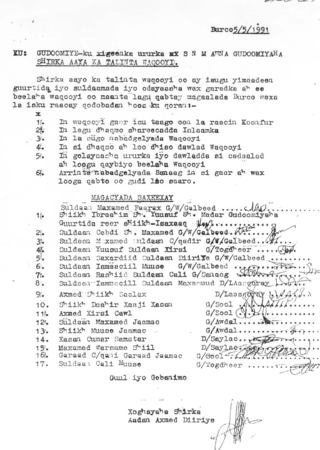
The Somaliland Declaration of Independence was made on 18 May 1991 by Somali sultans from the Isaaq, Dhulbahante, Issa, Gadabursi, Warsangali clans, as well as the Somali National Movement.
